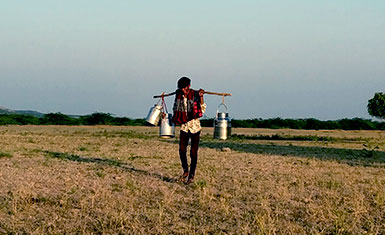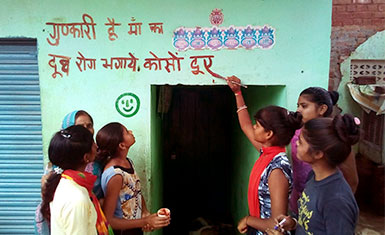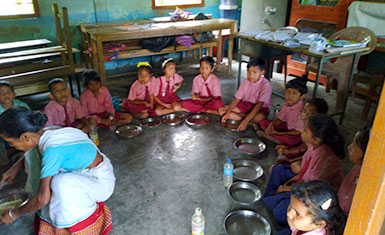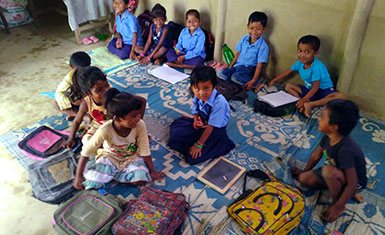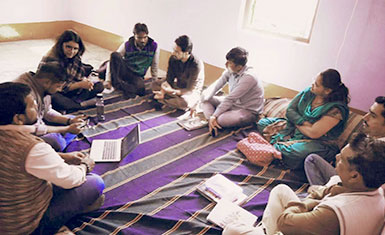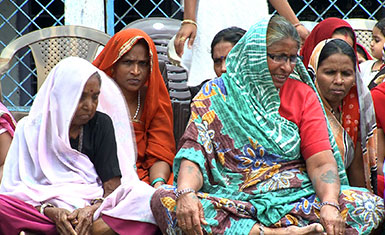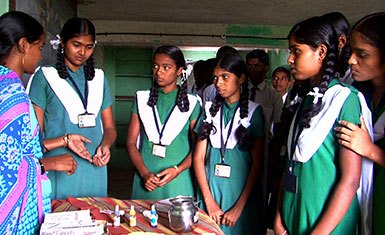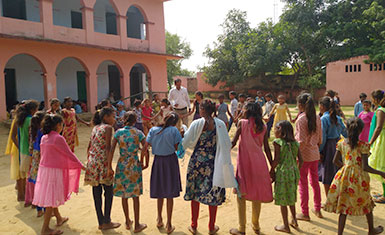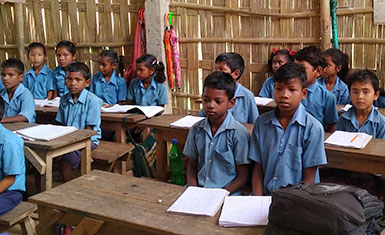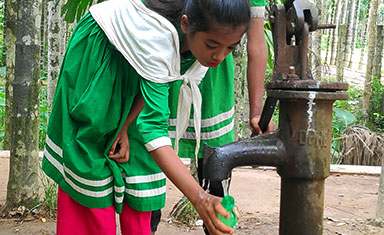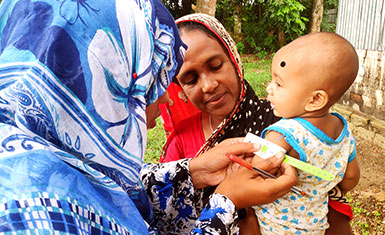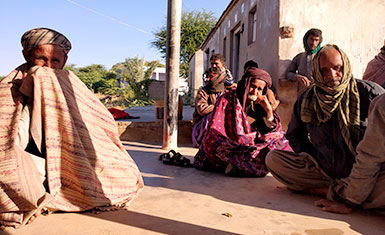Co-create scalable solutions with communities
Our Offerings
Our engagement with the lifecycle of development projects include:
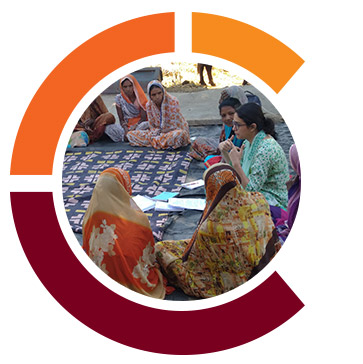
Our focus on context driven solutions is all down to the fact that we don’t stop at outputs. We seek outcomes and lasting impact.
Program Design
NRMC recognises and strengthens local expertise to sensitively build on local cultural and institutional strengths while identifying and addressing potential opportunities. We ensure ownership of intellectual property and technologies developed such that local communities and authorities are as deeply invested in interventions as with those creating them. NRMC’s approach to program design enables communities to take charge of their own development.
Human Centred Program Design (HCD)
Using principles of design thinking and behavioural sciences, we create grounded program strategies, focused on the felt needs of the communities we serve. NRMC uses approaches and techniques to closely connect with communities in designing developmental programs. Consumer centric design and co-creation workshops, Trials for Improved Practices (TIPS) are few of the tools used for this purpose. One thing we’ve learned over the years is that complex, interconnected challenges must be tackled systemically – and that’s only possible when the ‘unusual suspects’ work together to solve common problems.
Built on nearly two decades of on-ground experience, NRMC founded a social impact lab to rethink development strategies and solutions. Learn more on NRMC’s specialized unit for HCD on
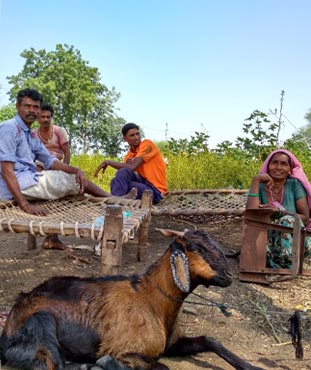
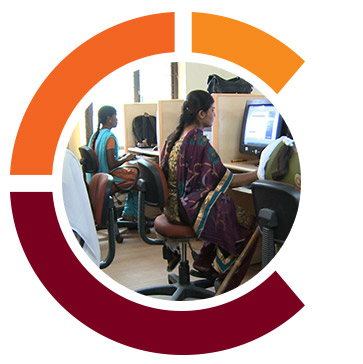
The focus remains on adaptive systems and processes to manage projects at scale, ensuring realisation of project objectives, timelines and value for money.
Program Management
NRMC’s adaptive management approach and practices represent innovative, current thinking on resolving conflicting demands and adjusting to changing social preferences and priorities. This management style is intended towards increasing timely responses in the face of new information and in a setting of varied stakeholder objectives and preferences. Our adaptive and dynamic management approach contributes to learning and has resulted in effective and efficient management of various large scale programmes in the past. We catalyse impact by promoting synergy and convergence between appropriate local, regional, and national institutions, agencies and programs to enhance impact and sustainability.
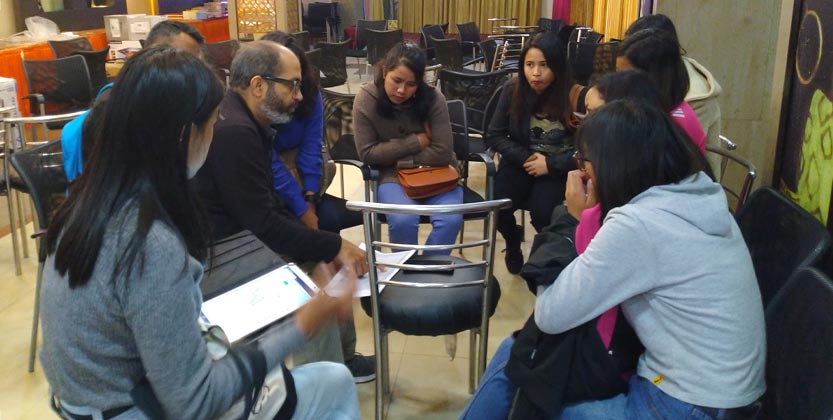
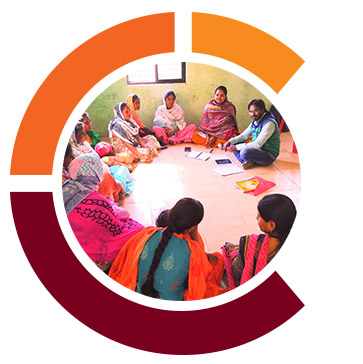
We help clients make evidence-based decisions, integrate sustainability into their interventions and create innovative solutions.
Monitoring, Evaluation and Learning
a) Reach and Recall Studies
Reach and recall studies are generally quantitative research undertaken to understand the reach of the program. The recall, message comprehension and retention for communication campaigns is done with the help of markers. Cross-sectional design and rigorous multi-stage sampling methods are used for representation of the universe.
b) Process Evaluation
NRMC uses a mixed method approach to evaluate the process of implementation of developmental programs. Frameworks such as the OECD-DAC criteria and IPO (Input, Process, Output) model is often used to understand the gaps at the various stages. Qualitative feedback is sought from all stakeholders to understand the roadblocks and mitigation strategies used and also to identify scalable best practices.
c) Impact Evaluation
Impact assessments are done with the use of statistically rigorous quantitative research designs with some qualitative input from various stakeholders. NRMC leverages its experience of handling large quantitative surveys using quasi-experimental and randomised control trial (RCT) designs.
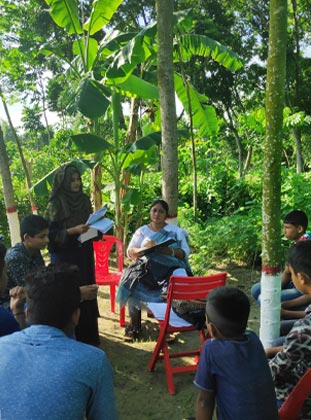
These studies can be cross-sectional as well as longitudinal depending upon the nature of the program being assessed. NRMC strongly focuses on the statistical rigour of impact assessments and takes various measures to ensure rigour in sampling techniques, for which propensity score matching (PSM) for control confounding variables and other multivariate analysis techniques are used.
Participatory approaches form the foundation of our work and this is reflected across all our projects.

Committed towards achieving effective and sustainable solutions, our research and advisory is centred on synthesis of big data and gathering nuanced insights through rigorous qualitative and quantitative approaches.
Research
Committed towards achieving effective and sustainable solutions, our advisory and research is centred on synthesis of big data and nuanced insights gathered through rigorous qualitative and quantitative approaches. Our in-depth research serves as a critical knowledge base for communities and clients in taking forward programmes towards realisation of crucial developmental goals and aspirations.
a) Need Assessment and Situational Assessment
Through this research we dive deep into the various spheres of human need to provide the root
causes and thus help prioritise the needs of the communities inhabiting a geographical area of
possible intervention.
b) Formative Research
This type of research is undertaken to understand the social and behavioural aspects hindering a desired action through qualitative research methods. The behavioural aspects are assessed with the frameworks based on social cognitive theory like socio-ecological framework, the trans-theoretical model, and their adaptations. Various innovative qualitative data collection and analysis techniques like story-telling, laddering, world-building, empathy mapping, etc. are used to understand and address the root cause of behaviours.
c) Policy Research
Mixed method data collection techniques are used for policy research. The REESI framework (relevance, efficacy, effectiveness, sustainability and impact) and its adaptations are used for comprehensive assessment of the policy in question covering all intended and unintended stakeholders. Rigorous statistical analysis is done to arrive at results and sector expertise of NRMC consultants to arrive at evidence based recommendations.
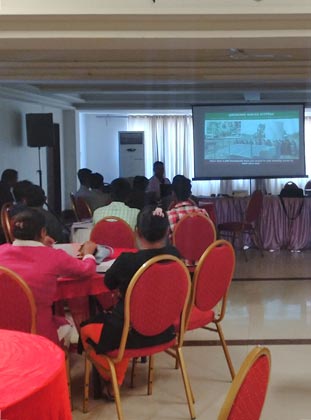
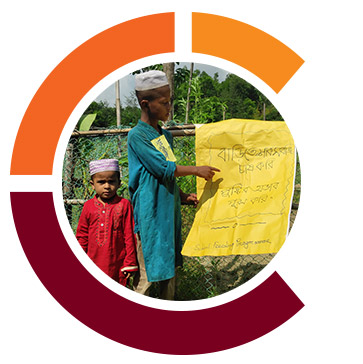
As a convener, dialogue instigator and guide to practical solutions, we identify and assemble stakeholders and develop areas where they can collaborate to transform systems.
Communication and Knowledge Management
NRMC works to ensure collation of lessons learnt and best practices from various programmes implemented by our clients. We employ a range of approaches to gather lessons and develop knowledge management platforms that allow for proliferation of knowledge for replication and advancement. We work with clients to design accountability and learning models for their programs. We facilitate the development of ‘Learning Organizations’ in which we offer approaches on knowledge management through the processes of capturing, developing, sharing, and effectively using organisational knowledge.

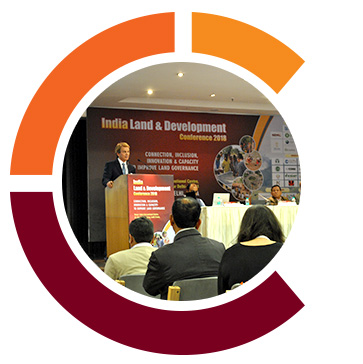
We guide organizations in setting, tracking and integrating high-impact objectives and metrics that support their strategy and success.
Corporate Engagement
NRMC helps its clients establish strong CSR profiles that improve visibility and strengthen relationships and reputation among key stakeholders. Linking CSR interventions with flagship government programs to facilitate strategic and effective partnerships remains a distinctive feature of our approach.
NRMC, engages in both co-creation of a robust social capital and augmentation of capacities to generate and derive environmental, social and economic benefits.
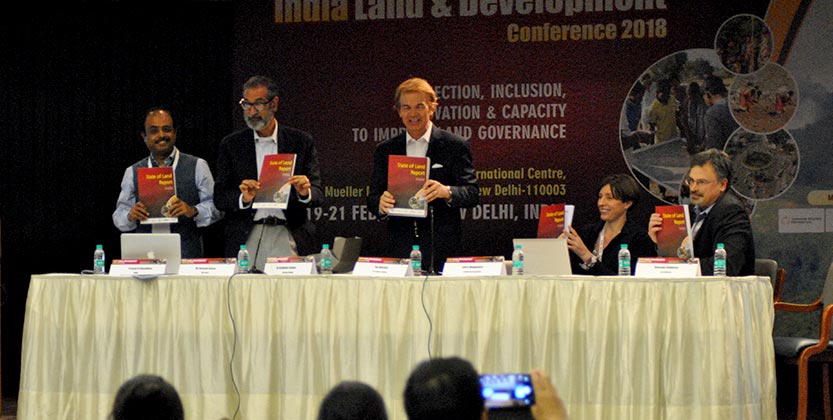
- Program Design
- Program Management
-
Monitoring, Evaluation
and Learning - Research
-
Communication and
Knowledge Management - Corporate Engagement

Our focus on context driven solutions is all down to the fact that we don’t stop at outputs. We seek outcomes and lasting impact.
Program Design
NRMC recognises and strengthens local expertise to sensitively build on local cultural and institutional strengths while identifying and addressing potential opportunities. We ensure ownership of intellectual property and technologies developed such that local communities and authorities are as deeply invested in interventions as with those creating them. NRMC’s approach to program design enables communities to take charge of their own development.
Human Centred Program Design (HCD)
Using principles of design thinking and behavioural sciences, we create grounded program strategies, focused on the felt needs of the communities we serve. NRMC uses approaches and techniques to closely connect with communities in designing developmental programs. Consumer centric design and co-creation workshops, Trials for Improved Practices (TIPS) are few of the tools used for this purpose. One thing we’ve learned over the years is that complex, interconnected challenges must be tackled systemically – and that’s only possible when the ‘unusual suspects’ work together to solve common problems.
Built on nearly two decades of on-ground experience, NRMC founded a social impact lab to rethink development strategies and solutions. Learn more on NRMC’s specialized unit for HCD on


The focus remains on adaptive systems and processes to manage projects at scale, ensuring realisation of project objectives, timelines and value for money.
Program Management
NRMC’s adaptive management approach and practices represent innovative, current thinking on resolving conflicting demands and adjusting to changing social preferences and priorities. This management style is intended towards increasing timely responses in the face of new information and in a setting of varied stakeholder objectives and preferences. Our adaptive and dynamic management approach contributes to learning and has resulted in effective and efficient management of various large scale programmes in the past. We catalyse impact by promoting synergy and convergence between appropriate local, regional, and national institutions, agencies and programs to enhance impact and sustainability.


We help clients make evidence-based decisions, integrate sustainability into their interventions and create innovative solutions.
Monitoring, Evaluation and Learning
a) Reach and Recall Studies
Reach and recall studies are generally quantitative research undertaken to understand the reach of the program. The recall, message comprehension and retention for communication campaigns is done with the help of markers. Cross-sectional design and rigorous multi-stage sampling methods are used for representation of the universe.
b) Process Evaluation
NRMC uses a mixed method approach to evaluate the process of implementation of developmental programs. Frameworks such as the OECD-DAC criteria and IPO (Input, Process, Output) model is often used to understand the gaps at the various stages. Qualitative feedback is sought from all stakeholders to understand the roadblocks and mitigation strategies used and also to identify scalable best practices.
c) Impact Evaluation
Impact assessments are done with the use of statistically rigorous quantitative research designs with some qualitative input from various stakeholders. NRMC leverages its experience of handling large quantitative surveys using quasi-experimental and randomised control trial (RCT) designs.

These studies can be cross-sectional as well as longitudinal depending upon the nature of the program being assessed. NRMC strongly focuses on the statistical rigour of impact assessments and takes various measures to ensure rigour in sampling techniques, for which propensity score matching (PSM) for control confounding variables and other multivariate analysis techniques are used.
Participatory approaches form the foundation of our work and this is reflected across all our projects.

Committed towards achieving effective and sustainable solutions, our research and advisory is centred on synthesis of big data and gathering nuanced insights through rigorous qualitative and quantitative approaches.
Research
Committed towards achieving effective and sustainable solutions, our advisory and research is centred on synthesis of big data and nuanced insights gathered through rigorous qualitative and quantitative approaches. Our in-depth research serves as a critical knowledge base for communities and clients in taking forward programmes towards realisation of crucial developmental goals and aspirations.
a) Need Assessment and Situational Assessment
Through this research we dive deep into the various spheres of human need to provide the root
causes and thus help prioritise the needs of the communities inhabiting a geographical area of
possible intervention.
b) Formative Research
This type of research is undertaken to understand the social and behavioural aspects hindering a desired action through qualitative research methods. The behavioural aspects are assessed with the frameworks based on social cognitive theory like socio-ecological framework, the trans-theoretical model, and their adaptations. Various innovative qualitative data collection and analysis techniques like story-telling, laddering, world-building, empathy mapping, etc. are used to understand and address the root cause of behaviours.
c) Policy Research
Mixed method data collection techniques are used for policy research. The REESI framework (relevance, efficacy, effectiveness, sustainability and impact) and its adaptations are used for comprehensive assessment of the policy in question covering all intended and unintended stakeholders. Rigorous statistical analysis is done to arrive at results and sector expertise of NRMC consultants to arrive at evidence based recommendations.


As a convener, dialogue instigator and guide to practical solutions, we identify and assemble stakeholders and develop areas where they can collaborate to transform systems.
Communication and Knowledge Management
NRMC works to ensure collation of lessons learnt and best practices from various programmes implemented by our clients. We employ a range of approaches to gather lessons and develop knowledge management platforms that allow for proliferation of knowledge for replication and advancement. We work with clients to design accountability and learning models for their programs. We facilitate the development of ‘Learning Organizations’ in which we offer approaches on knowledge management through the processes of capturing, developing, sharing, and effectively using organisational knowledge.


We guide organizations in setting, tracking and integrating high-impact objectives and metrics that support their strategy and success.
Corporate Engagement
NRMC helps its clients establish strong CSR profiles that improve visibility and strengthen relationships and reputation among key stakeholders. Linking CSR interventions with flagship government programs to facilitate strategic and effective partnerships remains a distinctive feature of our approach.
NRMC, engages in both co-creation of a robust social capital and augmentation of capacities to generate and derive environmental, social and economic benefits.

What we do
We support global change-makers to build an inclusive and sustainable world where all people, everywhere, can reach their fullest potential.
Catalyzing the attainment of sustainable development goals, NRMC believes in strengthening five pillars to help identify broad strategies for accelerating performance and creating sustainable impact:

